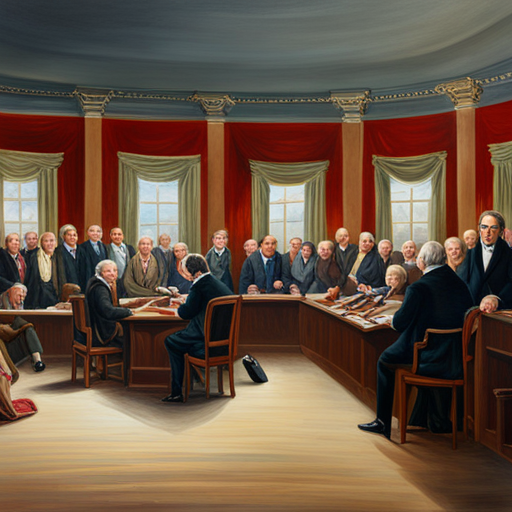Your cart is currently empty!
Category: law
-

Government Internet: How to Find Out if You Qualify for Internet Welfare
can YOU get the government to pay your phone bill or discount your wifi bill?
USAC has a program called Lifeline that provides internet service. There was another program called The Affordable Connectivity Program (ACP), but it ended June 1, 2024. The ACP was enacted to replace the Emergency Broadband Benefit (EBB), which Congress chose not to fund. However, less than a year later Congress chose not to fund the ACP either and set it to be defunded.
Lifeline is still available though. Eligible individuals can receive up to a $9.25 discount per month on the cost of phone, internet, or bundled services (up to $34.25 if you live on Tribal Lands).
One can qualify for Lifeline three different ways:
1. Based on income;
2. Based on eligibility for SNAP, Medicaid, or other programs; or3. Based on being a survivor of domestic violence or human trafficking crime.

Based on Income
You can get Lifeline if your income is 135% or less than the Federal Poverty Guidelines (table below). The guideline is based on your household size and state (Hawaii and Alaska have their own columns but all other states have the same income cutoff). See information about how to calculate your household size.
The table below reflects 135% of the 2025 Federal Poverty Guidelines.
Household Size 48 Contiguous States, D.C., and Territories Alaska Hawaii 1 $21,128 $26,393 $24,287 2 $28,553 $35,681 $32,832 3 $35,978 $44,969 $41,378 4 $43,403 $54,257 $49,923 5 $50,828 $63,545 $58,469 6 $58,253 $72,833 $67,041 7 $65,678 $82,121 $75,560 8 $73,103 $91,409 $84,105 For each additional person, add: $7,425 $9,288 $8,546 You may have to show proof of income, like a tax return or three consecutive months of pays stubs, when you apply for Lifeline.
Based on Receipt of Other Qualifying Benefits
Federal Assistance Programs
You can get Lifeline if you (or someone in your household) participate in one of these programs:
- Supplemental Nutrition Assistance Program (SNAP), formerly known as Food Stamps
- Medicaid
Your Medicaid eligibility may be up for renewal.
Learn more about how to renew (Spanish language information). - Supplemental Security Income (SSI)
- Federal Public Housing Assistance (FPHA)
- Veterans Pension and Survivors Benefit
You may have to show proof of participation, like a benefit letter or official document, when you apply for Lifeline.
Tribal Assistance Programs
If you live on Tribal lands, you can get Lifeline if your household income is at or below 135% of the Federal Poverty Guidelines, or if you (or someone in your household) participate in:
- Any of the federal assistance programs listed above
- Bureau of Indian Affairs General Assistance
- Head Start (only households meeting the income qualifying standard)
- Tribal Temporary Assistance for Needy Families (Tribal TANF)
- Food Distribution Program on Indian Reservations
You may have to show proof of participation, like a benefit letter or official document, when you apply for Lifeline. Learn more about the Tribal Benefit.
Based on If You Are a Survivor
The Safe Connections Act (SCA) helps survivors of domestic violence, human trafficking, and related crimes get discounted phone, internet, or bundled services. If a survivor pursues a line separation request, the SCA requires mobile providers to separate phone lines linked to family plans where the abuser is on the account.
If you are a survivor, you can participate in the Lifeline program if you provide proof of a line separation request and if you are experiencing financial hardship. Survivors experiencing financial hardship may qualify through existing Lifeline program requirements mentioned above or through one of the SCA-specific methods below:
- If your household income is at or below 200% of the Federal Poverty Guidelines
- Enrollment in the Special Supplemental Nutrition Program for Women, Infants, and Children (WIC)
- Enrollment in the Free and Reduced-Price School Lunch or Breakfast program, including enrollment at a Community Eligibility Provision (CEP) school or school district
- Received a Federal Pell Grant in the current award year
If you qualify for Lifeline, your privacy will be protected, and you can receive up to 6 months of emergency Lifeline support. For more information, visit the Survivor Benefit page.
Qualify Through Your Child or Dependent
You can get Lifeline if your child or dependent participates in any of the programs listed above.
Program Rules
The program rules, taken directly from the Lifeline website are provided below.
By signing up for Lifeline, you agree to follow the program’s rules
 Prove your eligibility
Prove your eligibilityLifeline is only available to subscribers who can prove their eligibility. When you apply for Lifeline, you must show proof of participation in a qualifying program or proof of income.
 Recertify every year
Recertify every yearEvery year, USAC will check to confirm you still qualify. If we cannot confirm you qualify, you will receive an email or letter in the mail and may also receive reminders by email, mail, or pre-recorded messages on your phone. If you are asked to recertify, you must do so within 60 days, or you will lose your Lifeline benefit.
 Keep your company up-to-date
Keep your company up-to-dateIf you change your address, no longer qualify for Lifeline, or more than one person in your household gets Lifeline, notify your company within 30 days.
 One discount per household
One discount per householdOnly one discount is allowed per household. A “household” is a group of people who live together and share income and expenses.
 Use it or lose it
Use it or lose itIf your Lifeline service is free, you must use it at least once every 30 days to maintain your service. If you don’t, you will get a 15-day notice to use it or it will get turned off.
 Be honest on your application and forms
Be honest on your application and formsIt is against the law to lie on any Lifeline-related forms or questionnaires.
Is it Worth it? Should I apply?
Probably not worth it. You probably shouldn’t apply. It seems like a lot of work for very little benefit. I would never voluntarily involve the federal government in my life any way, even if the program was offering more than $8 a month. This seems like an extremely dumb waste of taxpayer money.
If you do want to see if you can get Uncle Sam to subsidize your phone or internet bill then you can checkout the website or the documents obtained therefrom.
-

New York Penal Law Sec. 255.17

NYC Salary Transparency in Job Advertisements Law (effective November 1, 2022)
Effective Nov
 ember 1, 2022
ember 1, 2022The NYC Human Rights Law requires employers to include a good faith pay range in all job advertisements. NYC’s Salary Transparency Law is another step towards pay equity for all New Yorkers, and is the latest addition to a suite of protections against discrimination for New Yorkers seeking employment.
Any advertisement for a job, promotion, or transfer opportunity that would be performed in New York City is covered by the new law. An “advertisement” is a written description of an available job, promotion, or transfer opportunity that is publicized to a pool of potential applicants, including, but not limited to, postings on internal bulletin boards, internet advertisements, printed flyers distributed at job fairs, and newspaper advertisements.
Interestingly, many economists and others have been vocal about how this law may actually cause salaries to be compressed. Will new NYC Salary Transparency Law result in pay compression?
OTHER PROTECTIONS UNDER NYC LAW








 ember 1, 2022
ember 1, 2022